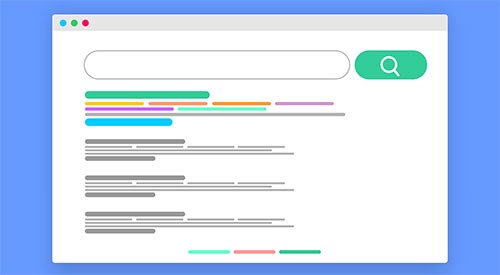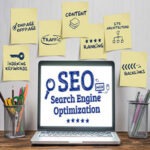Optimizing your website’s search engine visibility is crucial for driving traffic and increasing conversions for your WooCommerce store. AI tools like can be harnessed to automate SEO optimization, streamlining the process and maximizing results. In this article, we will explore how you can leverage AI to generate effective meta tags and enhance your WooCommerce website’s search visibility. By following these step-by-step instructions, you can utilize popular SEO plugins such as Yoast SEO, All in One SEO, and Rank Math, along with AI-powered tools, to boost click-through rates and improve your search rankings.
Understanding the Importance of Meta Tags:
Meta tags are vital in conveying concise information about your web pages to search engines and users. They include title tags, meta descriptions, and other relevant metadata. Optimizing meta tags helps search engines understand your content and present it to the right audience. Effective meta tags also entice users to click through to your website from search engine results pages (SERPs).
Harnessing the Power of AI Tools:
AI tools like ChatGPT can assist in generating compelling meta tags by analyzing your content and providing relevant suggestions. Here’s how you can use AI to automate the meta tag optimization process:
- Install and Configure an SEO Plugin – Start by installing a popular SEO plugin for WordPress such as Yoast SEO, All in One SEO Pack, or Rank Math. These plugins provide advanced meta tag optimization features.
- Generate Title Tags – Utilize AI tools of your choice to generate optimized title tags for your WooCommerce product pages. The AI tool can analyze the content, consider keyword relevance, and provide suggestions for engaging titles that attract clicks and improve search visibility. Make sure the keywords you use tie in with the keyword research you did when preparing your SEO plan.
- Craft Engaging Meta Descriptions – Leverage the AI tool’s analysis to create compelling meta descriptions. These snippets appear below the title tag on SERPs and influence users to click through to your website. Ensure the meta descriptions accurately summarize the page content and include relevant keywords.
- Inputting Meta Tags in Blog Posts and WooCommerce Products – Once you have generated and optimized your title tags and meta descriptions using AI tools and SEO plugins, it’s essential to correctly input them into your blog posts and WooCommerce products. Properly incorporating meta tags ensures that search engines and users can easily understand the content and relevance of your web pages.
Utilize Structured Data Markup
To further boost your clickthrough rates, you can take advantage of SEO plugins that support structured data markup. Structured data helps search engines understand your website’s content better and can result in rich snippets, which enhance visibility and click-through rates.
Implementing SEO Best Practices
To maximize the effectiveness of AI-generated meta tags, follow these best practices:
- Keyword Research – Conduct thorough keyword research to identify relevant keywords and phrases for your products or services. Incorporate these keywords into your meta tags naturally, avoiding keyword stuffing.
- Compelling Copywriting – While AI can provide suggestions, it’s essential to review and fine-tune the generated meta tags to ensure they align with your brand voice and convey the intended message effectively.
- A/B Testing – Test different variations of meta tags to understand which ones generate the highest click-through rates. Continuously monitor and optimize your meta tags based on user engagement data.
- Optimize for Mobile – With the majority of online searches happening on mobile devices, ensure that your meta tags are optimized for mobile viewing. Consider shorter title tags and concise meta descriptions that display effectively on smaller screens.
- Optimizing Meta Tags for Enhanced User Engagement – Meta tags not only play a crucial role in search engine optimization but also directly impact user engagement. By optimizing your meta tags, you can attract users’ attention, increase click-through rates, and improve overall user experience.
- Analyzing Performance – Regularly monitor the performance of your AI-generated meta tags using analytics tools like Google Analytics or WooCommerce’s built-in tracking. Keep track of click-through rates, search rankings, and conversion rates to assess the effectiveness of your meta tag optimization efforts.
Site Load Speed Matters Too
Site speed plays a crucial role in SEO, as it directly impacts user experience and search engine rankings. Fast-loading websites provide a better browsing experience, leading to higher engagement and lower bounce rates. Search engines prioritize delivering a seamless user experience, and websites that load quickly are favored in search results. Optimizing your website’s speed by minimizing file sizes, leveraging caching mechanisms, and optimizing code can significantly improve your SEO efforts. Users appreciate fast-loading websites, and search engines reward them with higher visibility, making site speed an essential factor to consider for effective SEO.
Staying Updated with SEO Best Practices
SEO is an ever-evolving field, and it’s crucial to stay updated with the latest trends and algorithm changes. Follow reputable SEO blogs and resources to stay informed and adapt your AI-powered meta tag optimization strategies accordingly.
In today’s competitive digital landscape, maximizing click-through rates and search visibility is essential for the success of your WooCommerce website. By harnessing the power of AI tools, and integrating them with powerful SEO plugins while making the best use of other SEO software, you can automate the process of optimizing meta tags and drive targeted traffic to your site. The ability to generate effective meta tags with AI assistance helps convey concise and compelling information to search engines and users, increasing the chances of attracting clicks from SERPs.
Remember to input the generated meta tags correctly on your blog posts and WooCommerce products, ensuring they accurately represent the content and relevance of your web pages. Additionally, consider implementing structured data markup and staying updated with SEO best practices to further enhance user engagement and visibility.
By embracing AI-generated meta tags and following other SEO best practices, you can elevate your SEO efforts, boost click-through rates, and drive the success of your WooCommerce website.












Leave a Reply